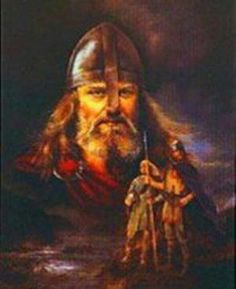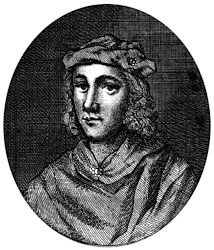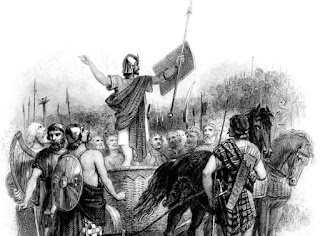Donald Cargill
THE COVENANTING MINISTER OF THE BARONY.

One of the four central prominent preachers around whom traditions of the Covenanters are clustered was the minister of the Barony parish of Glasgow. Cameron, Cargill, Peden, and Renwick uttered no uncertain sound at that crisis of Scotland's history. Whilst Peden barely escaped a bloody death, the other three were called upon to lay down their lives for the cause, Cargill and Renwick on the scaffold, and Cameron on the battlefield. Donald Cargill had no other charge than the Barony; and by his brave unflinching testimony during the darkest hour, not only served his own day and generation, but it is to him and such as he, that his fellow-citizens of Glasgow and of Scotland owe their civil and religious liberty.
Cargill was born about 1610, of a respected family in the parish of Rattray. Schooled at Aberdeen and St Andrews College, he was called to be minister of the Barony parish of Glasgow. Upon the 26th May following, the day appointed to commemorate the Restoration (1660), an unusual crowd came expecting to hear a sermon in honour of the King. Instead of that, upon his entering the pulpit, Mr Cargill repudiated any such idea, and denounced the King for his evil life and treacherous disposition, saying it was a black day for Scotland when such a king came to reign over her. For this outspoken zeal he was constrained to seek safety in concealment, finding shelter in private houses, and often sleeping among the broom near the city. He never lost a chance of private preaching and became a great vexation to the Government. Middleton made great efforts to arrest him in 1662, but he escaped. The Council banished him to the north of the Tay, but this had no effect; he remained about Glasgow, preaching at the conventicles in the im- mediate vicinity. In October 1665 a public search was made for him in Glasgow, but being warned, he rode boldly past one body of soldiers before he was recognised, and afterwards made good use of his horse's speed.
After several wonderful escapes, he was at last apprehended, and made to stand before the Council on nth January 1669, when he bore faithful testimony. Through the interposition of some persons of quality, his wife's relations, and others, he was dismissed. Ten years after he was at Bothwell Brig, and was wounded and taken prisoner, but to his own surprise the soldiers let him go. A day or two after he was pursued, from his own chamber in Glasgow, out of the town, and again he walked boldly past a troop of horsemen. Next Sunday he preached at Langside.
Early in 1680 he went to the shores of the Forth, where he continued till the scuffle at Queensferry, when his friend Haughhead was killed and he himself wounded. He continued to preach as before, every time he got an opportunity. Richard Cameron and Cargill then joined company, and went about preaching together, until the former was surprised and killed at Airsmoss.
Cargill made his way northward, and, in no ways dismayed, in September following, at a numerous gathering in the Torwood, Stirlingshire, he formally pronounced sentence of excommunication against some of the most violent persecutors of the day. Cameron and Cargill together had drawn up the Sanquhar Declaration, which was published at the Market Cross of Sanquhar, 22nd June 1680, and in consequence of which the Government offered three thousand merks for the arrest of Mr Cargill, but after the act of the Torwood the amount was increased to five thousand merks. He was looked upon as the arch-enemy of the Government and indeed was the only prominent leader left of the Covenanters.
Marion Hervey, a servant girl of Borrowstouness, aged twenty, was executed in Edinburgh in 1681, for hearing Cargill and for assisting him to escape at South Queensferry. Isabella Allison suffered with her; she belonged to Perth, and was apprehended for having heard Donald Cargill, and for refusing the test. Still nothing would silence or terrify him. The old veteran of seventy-one preached at Maybole and other places, in spite of the prize of five thousand merks set on his head. At last, he was seized by a farmer, and given up to the Government. " His captors hasted from Lanark to Glasgow, sixteen miles, fearing a rescue; when they came near the city, they turned Mr Cargill on the horse and led him in backward, which made many to weep to see their old minister in that position.
While waiting at the Tollbooth till the magistrates came to receive them, one John Nisbet, the Archbishop's factor, said to Mr Cargill in ridicule, three times over, ' Will you give us one word more? ' Alluding to an expression he used sometimes in preaching,
From Glasgow they were taken to Edinburgh, and (15th July) were brought before the Council. Chancellor Rothes (being one of those he had excommunicated at Torwood) raged against him, threatening him with torture and a violent death. To whom he said, ' My Lord Rothes, for bear to threaten me, for die what death I will, your eyes shall not see it.' Which accordingly came to pass, for Rothes died the morning of that day in the afternoon of which Mr Cargill was executed."
Mr Cargill was hanged at the Cross of Edinburgh on 27th July, along with Walter Smith and another Covenanter named Brig. When on the scaffold the old man sang part of Psalm cxviii. When going up the ladder he said, " The Lord knows I go on this ladder with less fear or perturbation of mind than I have sometimes entered the pulpit''











Comments
Post a Comment